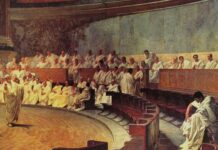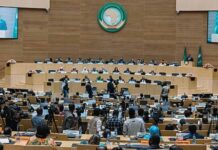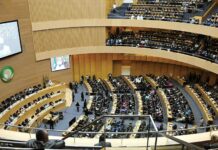A few days ago, on the 10th of October, the winner of the Nobel Peace Prize for the year 2025 had been announced. This announcement came amid mounting pressure campaigns by Donald Trump and many of his supporters for the US President to be honoured with the Peace Prize. Receiving the Nobel Peace Prize has been a well-known goal of Trump’s dating back many years at this point. Trump and his supporters point to the various US-brokered ceasefires that have been organised by the Trump administration as making him worthy of the prize.
With the recent news of a US-mediated ceasefire between Israel and Hamas, it did seem at least more likely that Trump may have had a good chance at it. However, in a surprising twist, it had been revealed that Venezuelan activist, María Corina Machado was chosen as the winner of the Nobel Peace Prize for 2025. Like with many, I imagine, I did not know too much about Machado prior to her winning the Peace Prize. However, the more I have learned about her story, the more it has become clear that she is definitely a truly deserving winner of this year’s Nobel Peace Prize.
BREAKING NEWS
— The Nobel Prize (@NobelPrize) October 10, 2025
The Norwegian Nobel Committee has decided to award the 2025 #NobelPeacePrize to Maria Corina Machado for her tireless work promoting democratic rights for the people of Venezuela and for her struggle to achieve a just and peaceful transition from dictatorship to… pic.twitter.com/Zgth8KNJk9
Born and raised in Venezuela, she has a Bachelor’s degree in industrial engineering and a Master’s in finance. Machado has spent much of her adult life campaigning for democracy in Venezuela against the authoritarian regimes of Hugo Chavez and his successor, Nicholas Maduro. Machado has campaigned for democracy in Venezuela through her founding and operating of civil society organisations, as well as through direct political action by campaigning to become a representative in the Venezuelan national assembly and even running for President of Venezuela.
This activism has come at great expense to her personally. Machado has been the victim of multiple attacks that have left her with injuries over the years. Threats experienced by Machado have resulted in her three children being forced to live outside Venezuela, away from their mother for their own safety. Since 2024, Machado has been in hiding in Venezuela due to her activism after the highly controversial July election. The election, in which opposition parties exposed the manipulation of the electoral results by the Maduro regime, illegitimately holding onto power.
For her activism throughout the years, the Norwegian Nobel Committee decided to award her the Nobel Peace Prize. In their announcement, the committee affirmed Machado’s lifelong struggle “to achieve a just and peaceful transition from dictatorship to democracy,” describing Machado as a “woman who keeps the flame of democracy burning amid a growing darkness.” As stated by the Nobel Committee, in a world where democratic backsliding has become the norm in so many places, it is refreshing to see a pro-democracy advocate actually winning the Nobel Peace Prize.
In a statement released by Machado, she would dedicate her Nobel Peace Prize to the people of Venezuela, stating that the Peace Prize “injects energy and confidence into Venezuelans, inside and outside the country, to complete our task.” Machado would even dedicate the award to US President Donald Trump, for “his decisive support for our cause,” displaying a level of political savvy, understanding of how much Trump has long desired to be awarded the peace prize himself.
This recognition of the struggle of all Venezuelans is a boost to conclude our task: to conquer Freedom.
— María Corina Machado (@MariaCorinaYA) October 10, 2025
We are on the threshold of victory and today, more than ever, we count on President Trump, the people of the United States, the peoples of Latin America, and the democratic…
As Gen Z-led anti-government protests surge across the developing world, driven by frustration with corrupt and undemocratic regimes, figures like María Corina Machado stand out as powerful role models for our generation. She shows us that simply demanding new leadership is not enough. If we fail to address the entrenched systems that enable corruption and authoritarianism, we risk repeating the same cycles. The real challenge lies in dismantling these structures and confronting the root issue: the pervasive lack of accountability within our governments.
The solution to this fundamental problem is genuine democracy, where leaders are chosen by the people and held accountable to them. We cannot rely on the goodwill of government officials to act with integrity. Accountability must be built into our systems. When politicians know their actions are being scrutinised by informed and empowered constituents, they are far more likely to fulfil their responsibilities. Being anti-corruption is a start, but it’s not enough. We need a sustained, collective push for reforms that lead to freer, more transparent, and truly democratic societies.
One common thread in many Gen Z-led protest movements is their leaderless nature. While these uprisings often centre around anti-corruption or anti-government sentiments, the absence of clear leadership or a defined ideology can hinder their ability to drive lasting change. Without tangible goals and organised leadership to pursue them, these movements risk losing momentum or even being co-opted. For these protests to translate into meaningful progress, they require clear direction, clear objectives, and leaders who can help turn that collective enthusiasm into concrete reforms.
The reality is that the fight for democracy often comes at a high personal cost. Throughout history, many have been martyred for daring to challenge authoritarianism. It takes extraordinary courage to be willing to face danger in pursuit of a just cause. Figures like María Corina Machado exemplify this bravery, standing firm despite the risks to herself and her family, becoming a bulwark against tyranny. Her unwavering commitment to democratic ideals makes her a truly deserving recipient of the 2025 Nobel Peace Prize.












